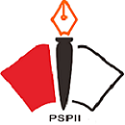Character Building Through Fitrah Based Education In The Era Of Society 5.0
Abstract
The era of the industrial revolution 4.0 has given birth to major changes in the 21st century marked by the development of the Internet of Things (IoT), Artificial Intelligence (AI) and Big Data. This revolution has impacted all aspects of life, including social, economic, cultural, political and educational, with the emergence of a world order that is full of volatility, uncertainty, complexity and ambiguity. The idea of the era of society 5.0 is a new hope for the birth of humanist technological progress where humans are the center of a technology-based society for a more meaningful and balanced life. This study is a liberary research which states that the approach to the educational process based on fitrah and basic human potential is more likely to create a natural, adaptive and comfortable learning process through five models of fitrah-based education approaches, namely character-based education, collaboration-based education, project-based education, talent-based education and role model-based education.
Keywords
Full Text:
PDFReferences
Allahuyarham, H. S. (2023). Overview: mengapa pendidikan harus berbasis kepada fitrah? https://fitrahbased.com/fitrah-based-education/
Andika, I. G. A. I. (2022). Meningkatkan Pendidikan Karakter Bagi Generasi Z Pada Era Society 5.0. Prosiding Webinar Nasional Pekan Ilmiah Pelajar (PILAR).
Angga, Abidin, Y., & Iskandar, S. (2022). Penerapan Pendidikan Karakter dengan Model Pembelajaran Berbasis Keterampilan Abad 21. Jurnal Basicedu, 6(1), 1046–1054. https://doi.org/10.31004/basicedu.v6i1.2084
Bandura, A. (2002). Social Cognitive Theory in Cultural Context. Applied Psychology: An International Review, 51(2), 269–290.
Bennett, N., & Lemoine, G. J. (2014). What a difference a word makes: Understanding threats to performance in a VUCA world. Business Horizons, 57(3), 311–317.
Dewan Perwakilan Rakyat. (2003). Undang-Undang Republik Indonesia Nomor 20 Tahun 2003 Tentang Sistem Pendidikan Nasional. www.hukumonline.comwww.hukumonline.com
Direktorat Jenderal Direktorat Jenderal Pendidikan Tinggi. (2020). Buku Panduan Merdeka Belajar Kampus Merdeka. Jakarta, Direktorat Jenderal Pendidikan Tinggi Kemdikbud RI.
Faruqi, U. Al. (2019). Survey Paper : Future Service in Industry 5.0. Jurnal Sistem Cerdas, 02(01), 67–79.
Firman, A. J. (2017). Paradigma Hasan Langgulung Tentang Konsep Fitrah Dalam Pendidikan Islam. Journal Uhamka, 8(2). http://journal.uhamka.ac.id/index.php/jpi
Forum, W. E., & Group, B. C. (2015). New Vision for Education: Unlocking the Potential of Technology. http://www3.weforum.org/docs/WEF USA_NewVisionforEducation_Repo rt2015.pdf
Indarta, Y., Jalinus, N., Waskito, W., Samala, A. D., Riyanda, A. R., & Adi, N. H. (2022). Relevansi Kurikulum Merdeka Belajar dengan Model Pembelajaran Abad 21 dalam Perkembangan Era Society 5.0. Edukatif : Jurnal Ilmu Pendidikan, 4(2), 3011–3024. https://doi.org/10.31004/edukatif.v4i2.2589
Kemendikbud. (2017). Modul Konsep dan Pedoman Pendidikan Karakter.
Kolb, A., & Kolb, D. (2018). Eight important things to know about the experiential learning cycle. Australian Educational Leader, 40(3), 8–14.
Kurniawan, K., Kusumawati, Hurriyati, S. D., Amirrasyid, A. F., & Mugni. (2023). Strategi Kepemimpinan Kepala Sekolah dalam Menghadapi Revolusi Digital 4.0. Journal on Education, 05(02), 2238–2247.
Maesyaroh, A., Aryanti, D., Hayati, E., & Fahrul SK, A. (2022). Urgensi Pemahaman Tahapan Pendidikan Fitrah Persfektif Fitrah Based Education Karya Harry Santosa. Al-Afkar, Journal for Islamic Studies, 5(3). https://al-afkar.com
Mariati. (2021). Tantangan Pengembangan Kurikulum Merdeka Belajar Kampus Merdeka di Perguruan Tinggi. SiNTESa Seminar Nasional Teknologi Edukasi Dan Humaniora.
Muniroh, M. (2019). Fitrah Based Education: Implementasi Manajemen Pendidikan Berbasis Fitrah di TK Adzkia Banjarnegara. Jurnal Manajemen Pendidikan Islam, 4(2).
Nugraha, D., & Octavianah, D. (2020). Diskursus Literasi Abad 21 Di Indonesia. JPE (Jurnal Pendidikan Edutama, 7(1). http://ejurnal.ikippgribojonegoro.ac.id/index.php/JPE
Putra, P. H. (2019). Tantangan Pendidikan Islam dalam Menghadapi Society 5.0. Jurnal Islamika: Jurnal Ilmu-Ilmu Keislaman, 19(02), 99–110.
Resufle, A. H., & Rofiki, M. (2022). Management of Islamic Education in the Challenges of Society 5.0. Edukatif : Jurnal Ilmu Pendidikan, 4(3), 4578–4588. https://doi.org/10.31004/edukatif.v4i3.2820
Risdianto, E. (2019). Development of Blended Learning Based on Web and Augmented Reality. Atlantis Press, 295. https://michiganvirtual.org/wp-content/uploads/2017/03/PlanningGuide-
Scheerens, J. (2013). What Is Effective Schooling? A review of current thought and practice.
Sukarno, M. (2020). Character Education Strengthening In Era Of Society 5.0.
Zulfajri, E., & Senja, R. A. (2003). Kamus Lengkap Bahasa Indonesia . Jakarta: Dhifa Publisher.
DOI: http://dx.doi.org/10.24042/002023141928700
Refbacks
- There are currently no refbacks.
Copyright (c) 2023 Al-Tadzkiyyah: Jurnal Pendidikan Islam

This work is licensed under a Creative Commons Attribution 4.0 International License.

Al-Tadzkiyyah: Jurnal Pendidikan Islam is licensed under a Creative Commons Attribution 4.0 International License. Copyright © UIN Raden Intan Lampung. All rights reserved.








